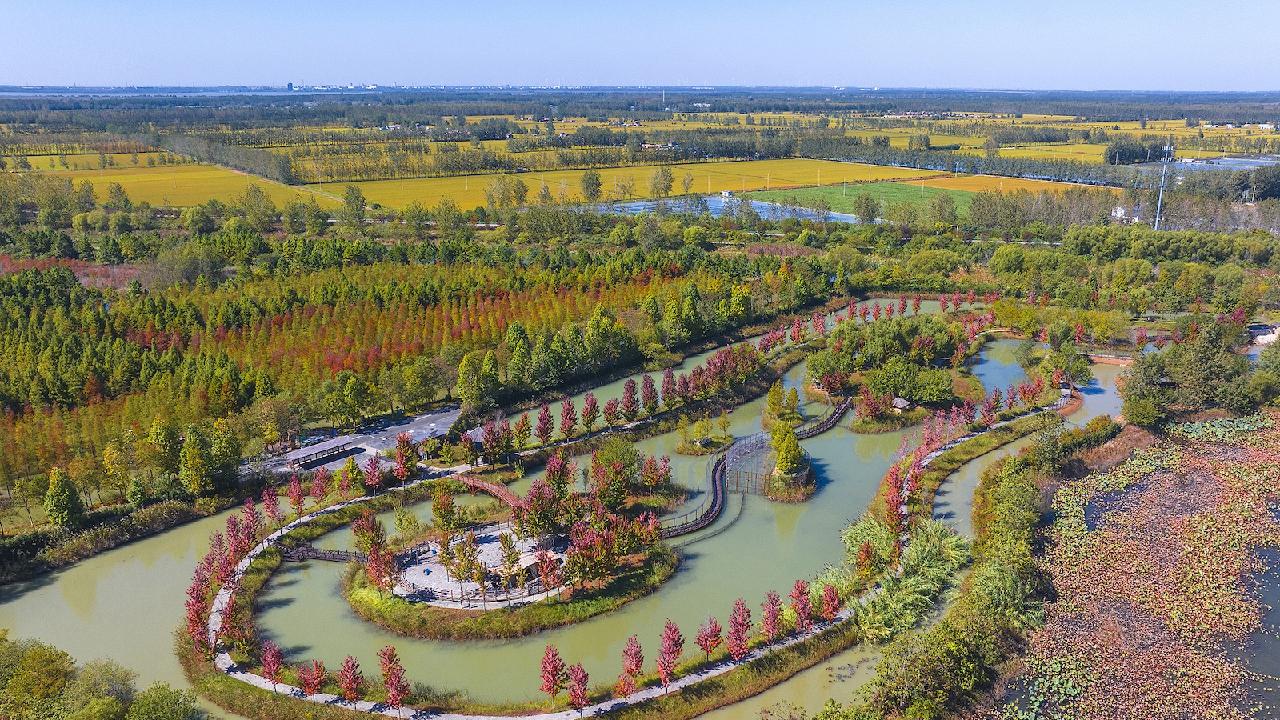China Establishes 903 National Wetland Parks Over the Past Two Decades to Promote Ecosystem Conservation
China establishes 903 national wetland parks over the past two decades, highlighting its commitment to environmental conservation.

Over the past two decades, China has established 903 national wetland parks, marking a significant stride in ecological conservation and biodiversity protection. This achievement was highlighted at an international seminar held in Hangzhou, Zhejiang Province, where experts and officials gathered to discuss ongoing efforts in wetland management and restoration.
The creation of these wetland parks has been instrumental in safeguarding 2.4 million hectares of wetlands across the country. These vital ecosystems provide a haven for numerous key national wildlife species, enabling the survival and proliferation of flora and fauna that are crucial to China's natural heritage. Wetlands are often referred to as the "kidneys of the earth" due to their ability to filter water, support biodiversity, and mitigate climate change impacts, making their preservation a top priority.

Yan Zhen, vice head of the National Forestry and Grassland Administration (NFGA), emphasized the country's ongoing commitment to wetland conservation during remarks at the seminar. He pointed out that China's total wetland area now stands at 56.35 million hectares, placing the nation among the global leaders in wetland protection. The country currently has 82 wetlands recognized as internationally important, underlining its role on the world stage for ecological preservation.
In addition to expanding protected areas, China has also launched ambitious restoration initiatives. Yan noted that 300,000 hectares of wetlands have been restored as part of the national wetland conservation plan. These efforts are not only enhancing ecological resilience but are also generating benefits for local communities through improved water quality, flood control, and ecotourism opportunities.
International collaboration remains a cornerstone of China's strategy. The establishment of the International Mangrove Center is one of the latest moves aimed at fostering global partnerships and sharing best practices. This center is expected to play a pivotal role in the exchange of knowledge and resources to tackle shared environmental challenges.
Looking ahead, the NFGA plans to deepen the holistic protection of wetland ecosystems by launching major projects in strategic regions, including the Yangtze and Yellow river basins. Authorities also aim to intensify international cooperation and actively participate in global ecological governance. These initiatives, according to Yan, will ensure that wetlands continue to thrive as invaluable natural assets for future generations.
As China accelerates its environmental agenda, wetland conservation stands out as a beacon of progress, reflecting both national dedication and a broader global commitment to sustainable development.




